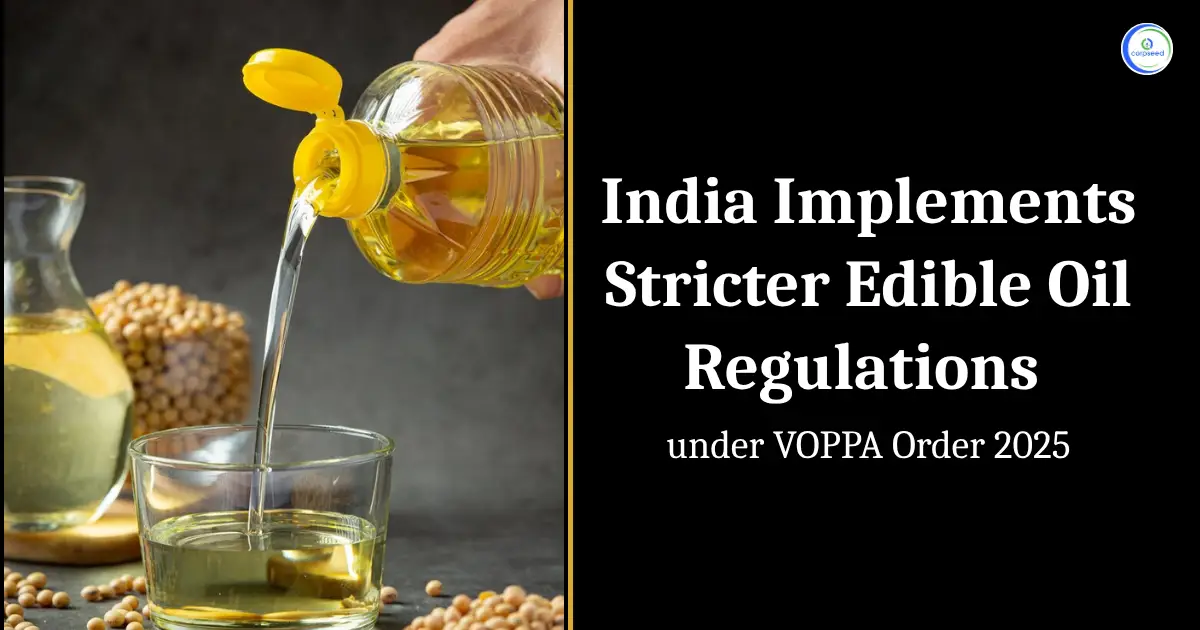In a significant regulatory move aimed at increasing transparency and stabilizing the edible oil sector, the Government of India has officially informed the Vegetable Oil Products, Production and Availability (VOPPA) under Regulation Order 2025. This order, which came into effect on August 1, 2025, substitutes the earlier 2011 version and introduces more strict requirements for production reporting, registration, and implementation.
Table of Contents
Issued under the Essential Commodities Act, 1955, the revised order obliges all vegetable oil producers to register with the Directorate of Sugar and Vegetable Oils, which is a unit under the Department of Food and Public Distribution. As per the new Schedule-I of the order, the producers have to deliver detailed information about factory locations, installed capacities and other operational data.
Mandatory Monthly Reporting and Inspections
One of the most prominent provisions of the new regulations is the introduction of compulsory monthly reporting. All registered producers now need to submit data by the 15th of each month, including details of stock levels, oil consumption, sales, raw material inflows, imports and exports. Capturing this structured data will help the government monitor market trends, prevent hoarding and ensure consistent availability of edible oil for consumers.
The Director of the Directorate is given improved enforcement powers, including the authority for inspecting premises, verifying records, and even confiscating stock in case of misreporting or non-compliance. The regulation also removes obsolete terms and harmonizes the definitions with existing laws like the Collection of Statistics Act, 2008.
FSSAI’s Parallel Role in Ensuring Quality
While the Food Safety and Standards Authority of India (FSSAI) regulates the safety, labeling, and fortification of edible oils, VOPPA focuses on order supply chain monitoring and statistical reporting. With FSSAI ensuring food quality, and Directorate focusing on availability and market discipline, the roles of both these agencies remain corresponding.
Mixed Reactions from Industry Stakeholders
The move has received mixed reactions from industry stakeholders. The Indian Vegetable Oil Producers’ Association (IVPA) welcomed the order, saying it would enhance transparency and data accuracy, particularly in the organized sector. However, small-scale producers and mills have expressed concerns about compliance challenges, especially in regions with limited digital infrastructure.
According to government officials, the updated regulation demonstrates a broader effort to modernize India's agricultural commodity monitoring systems, enhance consumer protection, and curb price volatility in crucial food items like edible oil, which India imports in significant volumes.
The Ministry has clarified that it will provide initial support to help smaller units to fulfill and adopt digital submission methods for monthly reporting.
With the edible oil sector playing an important role in India's food security and trade dynamics, this regulation is expected to bring about more accountability, better policy planning, and smoother market operations.
This portion of the site is for informational purposes only. The content is not legal advice. The statements and opinions are the expression of author, not corpseed, and have not been evaluated by corpseed for accuracy, completeness, or changes in the law.

